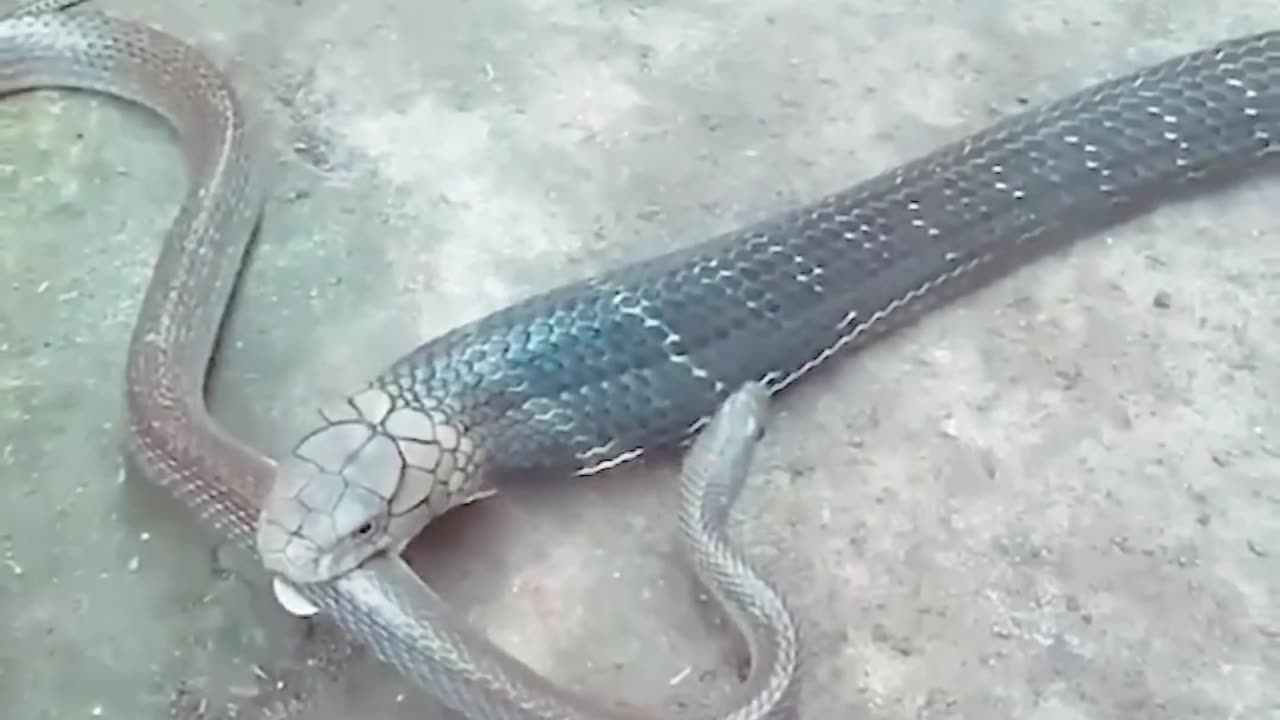Premium Only Content

Snake Lover's & care'
Taking care of a pet snake involves creating an environment that mimics its natural habitat, providing proper nutrition, maintaining hygiene, and ensuring its overall well-being. Here are some essential aspects to consider for snake care:
Habitat:
Enclosure: Choose an appropriately sized enclosure with enough space for the snake to move comfortably.
Substrate: Use suitable bedding (substrate) such as aspen shavings, cypress mulch, or paper towels, depending on the snake species.
Temperature: Maintain a gradient in temperature within the enclosure (hot side and cool side) using heat lamps or heating pads. This allows the snake to regulate its body temperature.
Humidity: Ensure the enclosure maintains the appropriate humidity level required for your snake species. Mist the enclosure or use a humidifier as needed.
Feeding:
Diet: Offer a diet consisting of appropriately sized prey items. Snakes are carnivorous, and their diet varies based on species—rodents, insects, or other small animals.
Feeding Schedule: Establish a feeding schedule according to the snake's age and species. Young snakes generally eat more frequently than adults.
Monitoring: Keep an eye on feeding behavior and adjust the prey size accordingly to prevent overfeeding or underfeeding.
Health and Handling:
Regular Check-ups: Schedule regular vet check-ups to ensure the snake's health and address any issues promptly.
Handling: Handle your snake gently and properly to avoid stress or injury. Learn the proper technique for handling your specific snake species.
Observation: Observe your snake for any signs of illness, stress, or abnormal behavior (like refusing food or excessive hiding).
Maintenance:
Cleaning: Regularly clean the enclosure—remove waste, shed skin, and any uneaten food to maintain hygiene.
Water: Provide fresh, clean water in a shallow dish. Change it regularly to prevent contamination.
General Tips:
Research the specific requirements of your snake species as different species have varying needs.
Avoid sudden changes in the environment as this can stress the snake.
Be cautious and knowledgeable about handling venomous snakes—if you have one, take necessary precautions and seek professional advice.
Regularly educate yourself on snake care, especially if you're a new owner or have a new species. Each snake has its own specific needs, so it's crucial to understand and cater to those requirements for their well-being.
Taking care of a pet snake involves creating an environment that mimics its natural habitat, providing proper nutrition, maintaining hygiene, and ensuring its overall well-being. Here are some essential aspects to consider for snake care:
Habitat:
Enclosure: Choose an appropriately sized enclosure with enough space for the snake to move comfortably.
Substrate: Use suitable bedding (substrate) such as aspen shavings, cypress mulch, or paper towels, depending on the snake species.
Temperature: Maintain a gradient in temperature within the enclosure (hot side and cool side) using heat lamps or heating pads. This allows the snake to regulate its body temperature.
Humidity: Ensure the enclosure maintains the appropriate humidity level required for your snake species. Mist the enclosure or use a humidifier as needed.
Feeding:
Diet: Offer a diet consisting of appropriately sized prey items. Snakes are carnivorous, and their diet varies based on species—rodents, insects, or other small animals.
Feeding Schedule: Establish a feeding schedule according to the snake's age and species. Young snakes generally eat more frequently than adults.
Monitoring: Keep an eye on feeding behavior and adjust the prey size accordingly to prevent overfeeding or underfeeding.
Health and Handling:
Regular Check-ups: Schedule regular vet check-ups to ensure the snake's health and address any issues promptly.
Handling: Handle your snake gently and properly to avoid stress or injury. Learn the proper technique for handling your specific snake species.
Observation: Observe your snake for any signs of illness, stress, or abnormal behavior (like refusing food or excessive hiding).
Maintenance:
Cleaning: Regularly clean the enclosure—remove waste, shed skin, and any uneaten food to maintain hygiene.
Water: Provide fresh, clean water in a shallow dish. Change it regularly to prevent contamination.
General Tips:
Research the specific requirements of your snake species as different species have varying needs.
Avoid sudden changes in the environment as this can stress the snake.
Be cautious and knowledgeable about handling venomous snakes—if you have one, take necessary precautions and seek professional advice.
Regularly educate yourself on snake care, especially if you're a new owner or have a new species. Each snake has its own specific needs, so it's crucial to understand and cater to those requirements for their well-being.
-
 5:22:44
5:22:44
GloryJean
19 hours agoMnK #1 Aggressive POV 🖱️ 6.7 K/D
6.06K -
 9:03
9:03
PragerU
13 hours agoAnti-ICE Organizers Exposed, U.S.–China Deal Reached, Hamas Kills Humanitarians: 6/13/25
5.97K1 -
 24:06
24:06
This Bahamian Gyal
13 hours agoEven BLACK PEOPLE are fed-up with BLACK PEOPLE
5.06K8 -
 0:55
0:55
Turning Point USA
16 hours agoRACE WAR | Official Trailer
5.74K1 -
 20:24
20:24
The BOB & TOM Show
1 day agoGerman Accents, Poop in a Shoebox & Plane Gender Reveal?! | BOB & TOM Show
5.01K1 -
 6:01:10
6:01:10
FyrBorne
1 day ago🔴Warzone Sniping: The Players Are Now The Anti Cheat
5.13K -
 14:26
14:26
Actual Justice Warrior
16 hours agoVirginia School SUED Over Hate Hoax
7.26K4 -
 13:29
13:29
The White House
16 hours agoThe Story of America - The 250th Anniversary of the U.S. Army
13.2K28 -
 23:16
23:16
Stephen Gardner
12 hours ago🚨BREAKING: DOGE EXPOSES NEW money laundering as Israel does MASS PsyOp on Iran!
22K54 -
 32:10
32:10
DeVory Darkins
6 hours agoMilitary Parade sparks MELTDOWN as Newsom suffers LEGAL BLOW
18.6K48